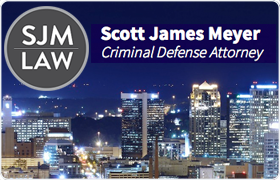 Birmingham DUI-DWI Lawyers, Alabama
Birmingham DUI-DWI Lawyers, Alabama
Sponsored Law Firm
-
 x
x

Click For More Info:
-
Law Office of Scott Meyer
1211 28th Street South Birmingham, AL 35205 » view mapJefferson County Criminal Lawyer Success with Scott
Scott James Meyer provides first-class criminal defense representation in Birmingham and the State of Alabama for drug offenses and other felonies and misdemeanors.
800-697-0641  Scott Meyer Birmingham, AL
Scott Meyer Birmingham, ALAttorney At Law - Alabama, 2010
Birmingham School of Law, J.D. - 2009
 Facebook
FacebookFor Additional Information About The Law Office of Scott Meyer
 Contact UsEmail or Call 24/7
Contact UsEmail or Call 24/7Call Today For Your Initial Free Consultation.
Sponsored Lawyers
1-10 of 12 matches
Accident & Injury, Personal Injury, Traffic, Criminal, DUI-DWI
Simms & Associates is widely regarded as one of the top personal injury law firms in the State of Alabama. The firm was founded in 1999 by lead attorney Derek Simms after gaining years of insight as an insurance industry insider. Simms & Associates will provide you with firsthand knowledge of how auto insurance companies operate. Insurers have specific methods of evaluating cases to determine their worth. Some insurance companies fear litigation – others do not. Simms & Associates can help guide you through the complex legal landscape to arrive at the best possible outcome in your personal injury case. Even if you have received a letter from an insurance company denying your claim on the basis of “contributory negligence,” Simms & Associates may be able to recover money damages on your behalf. Simms & Associates has also earned a reputation as an aggressive criminal defense firm that tries bench and jury trials in state and federal courts throughout Alabama. Simms & Associates is well-known for fighting hard and going to trial if needed to achieve the client's goals. Success in criminal defense requires persistence in the discovery phase and a detail-oriented approach. Simms & Associates works diligently to protect the rights of clients. The firm handles a wide range of criminal cases, including DUI and drug offenses The lawyers at Simms & Associates take personal pride in achieving the best possible outcome in the cases they handle. Their track record speaks for itself, with countless dismissals and jury acquittals.
(more)




 Scott Meyer Birmingham, AL
Scott Meyer Birmingham, AL Facebook
Facebook Contact UsEmail or Call 24/7
Contact UsEmail or Call 24/7

